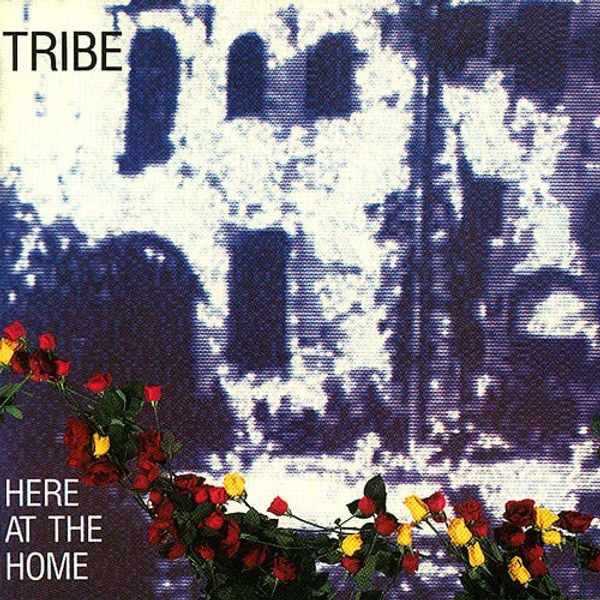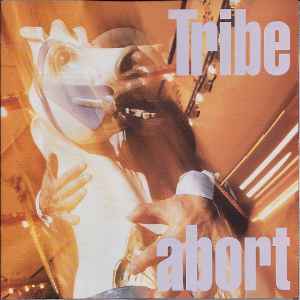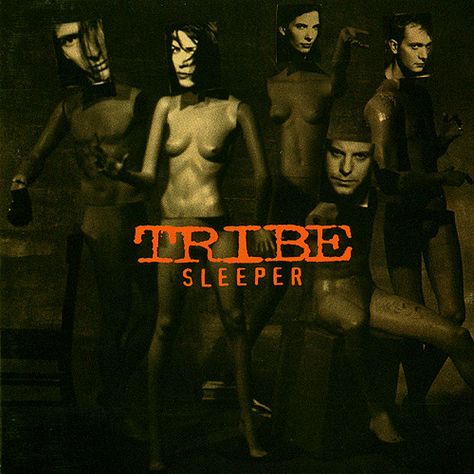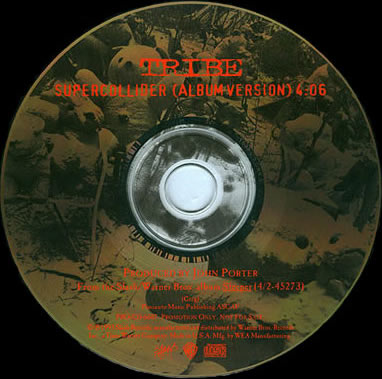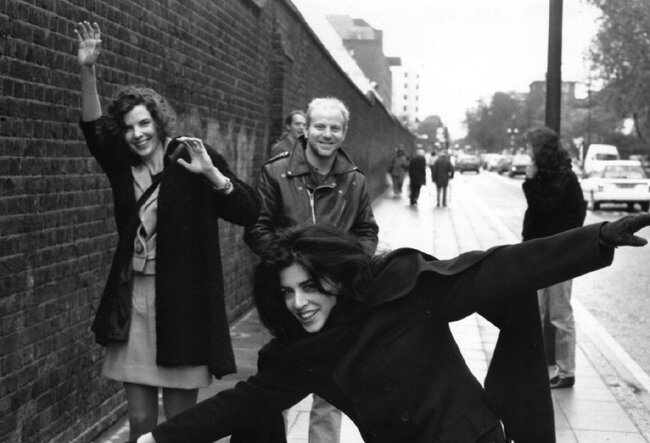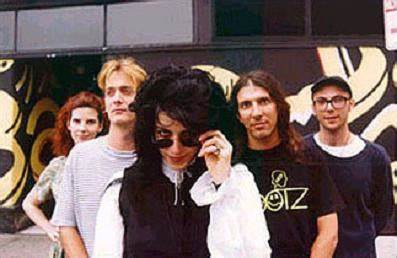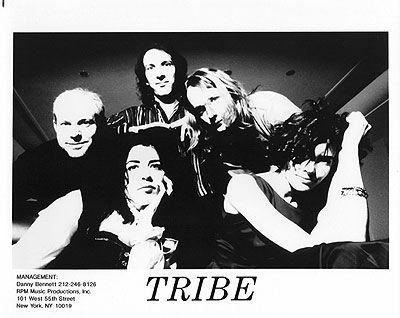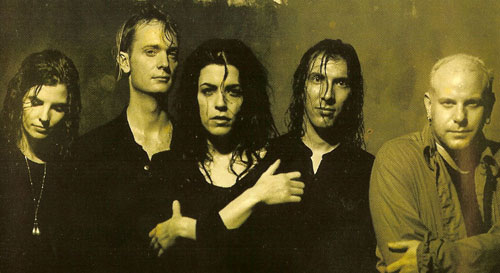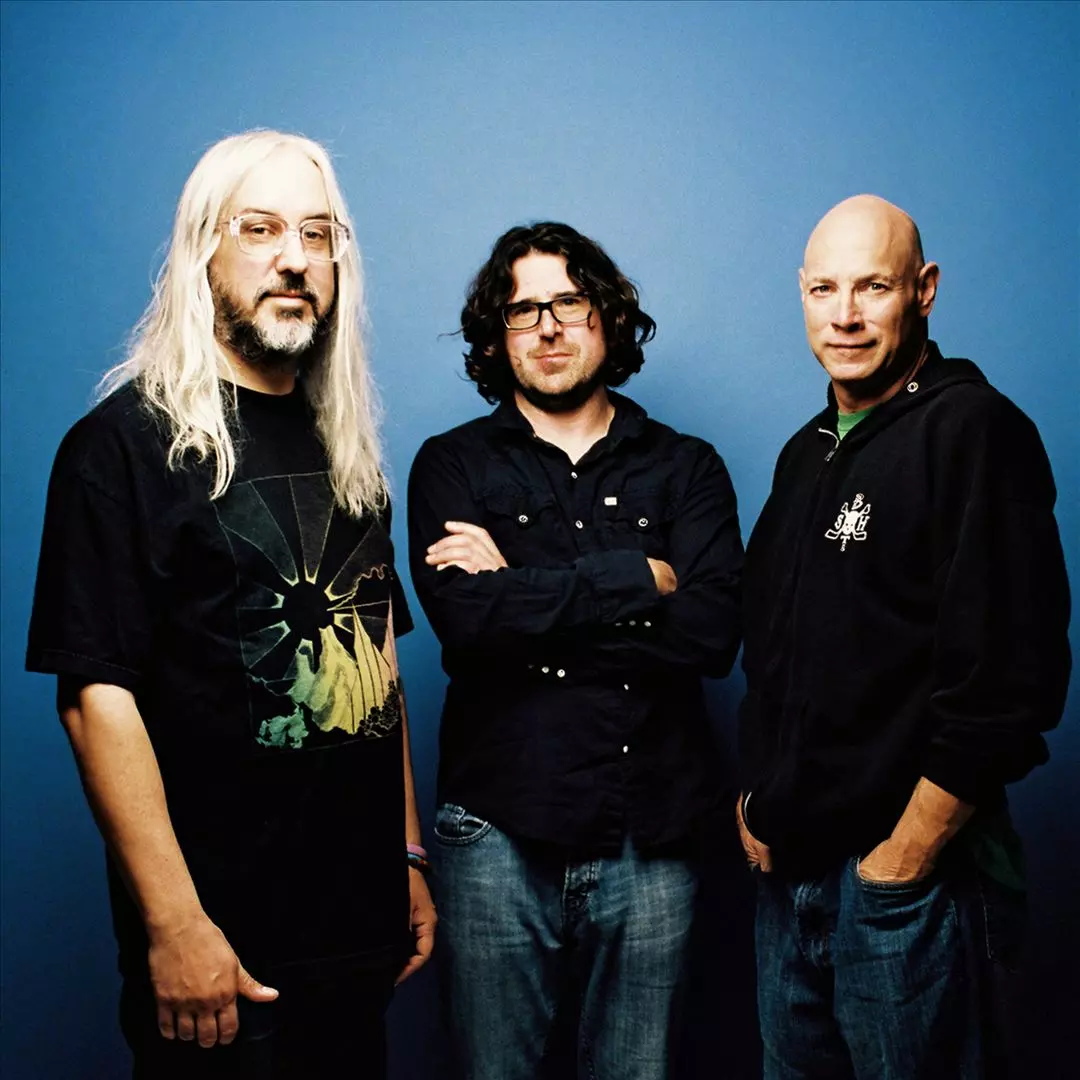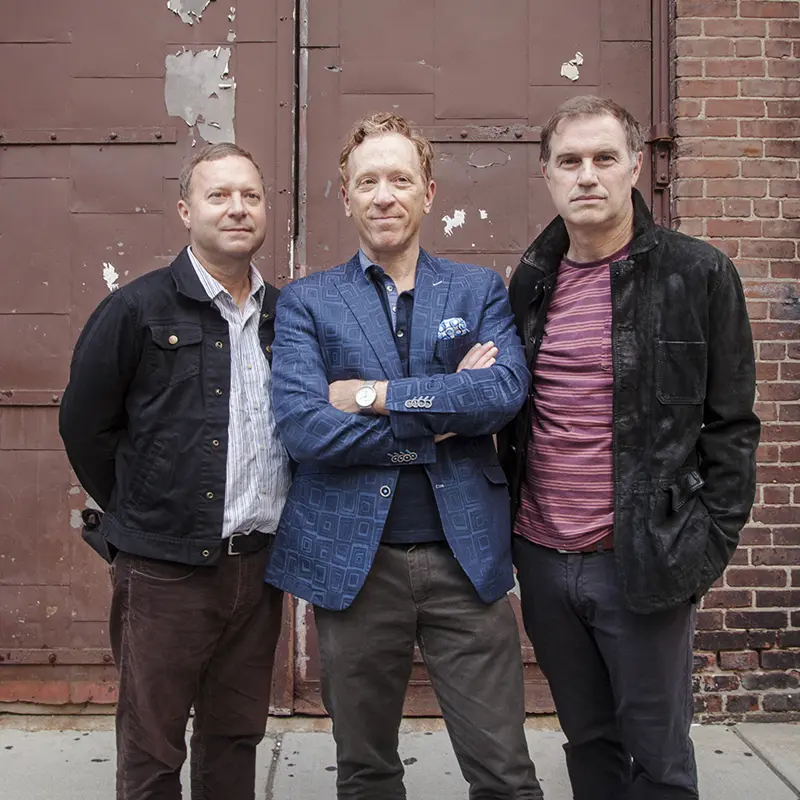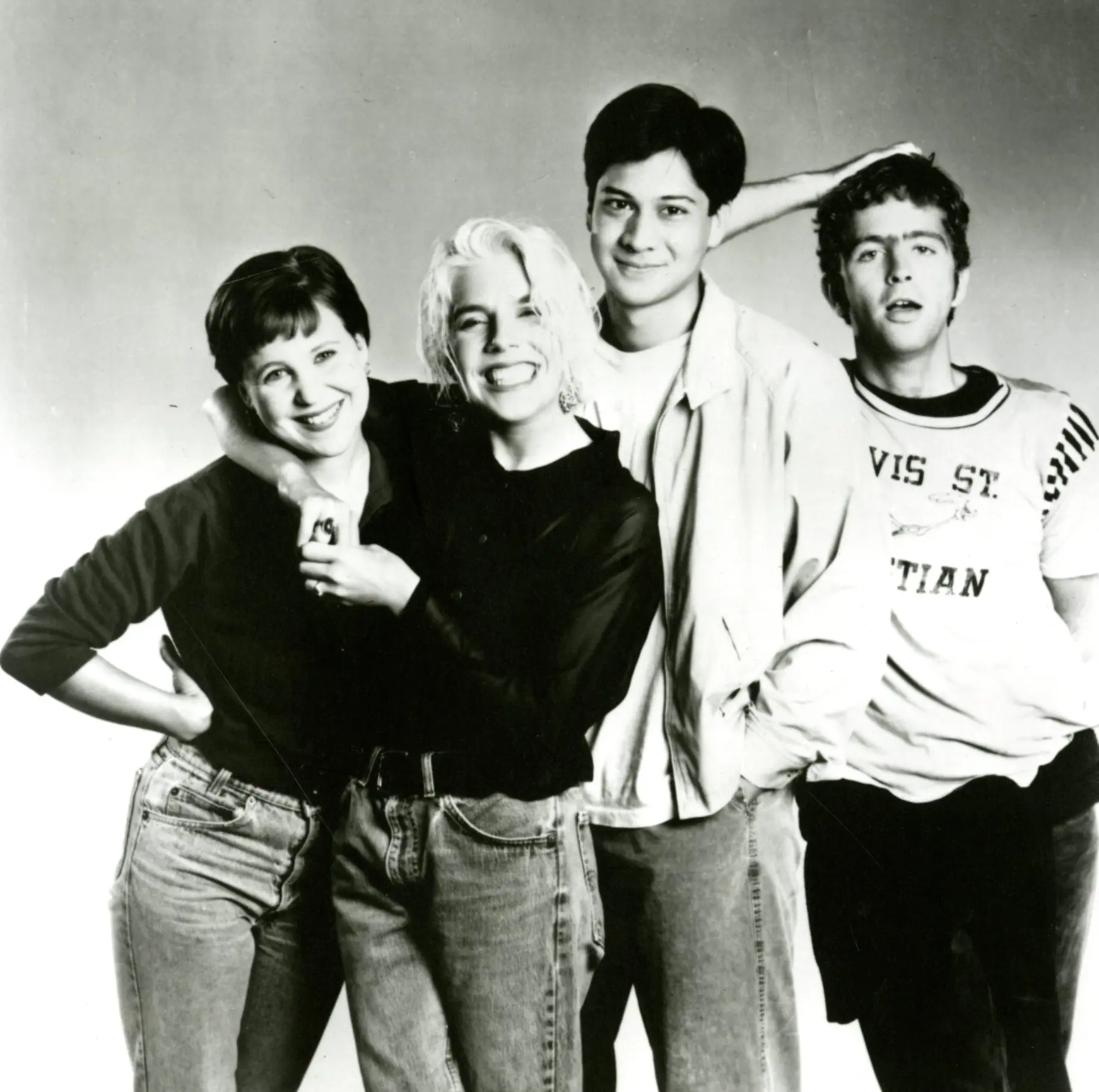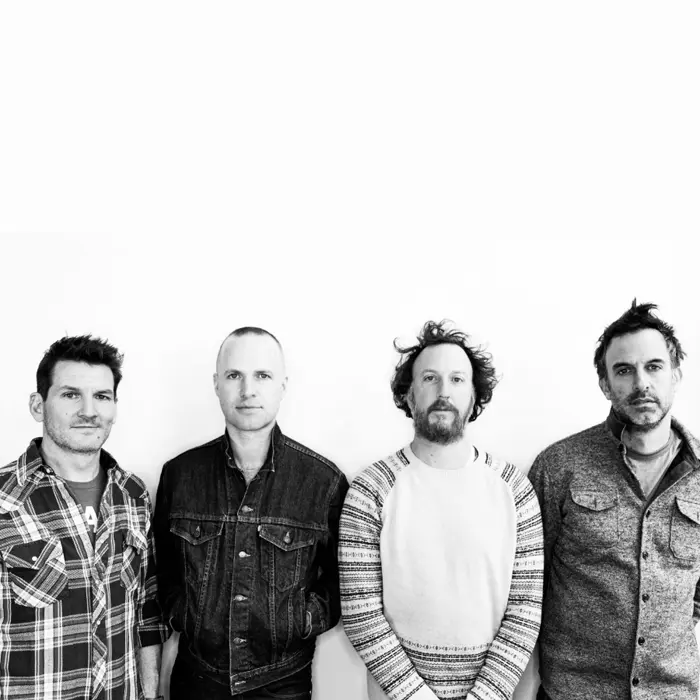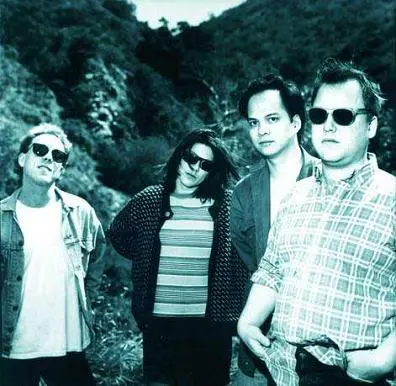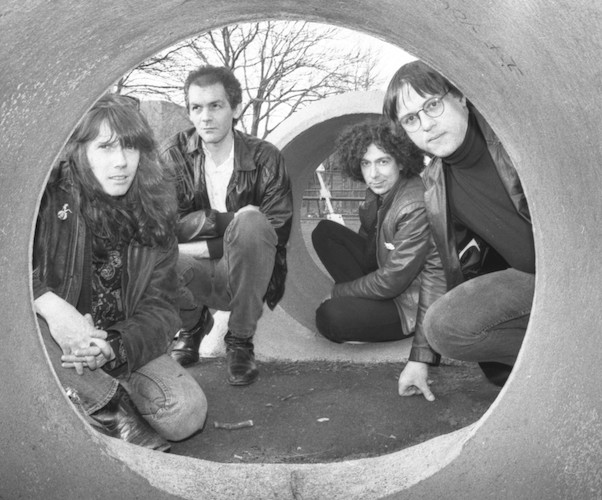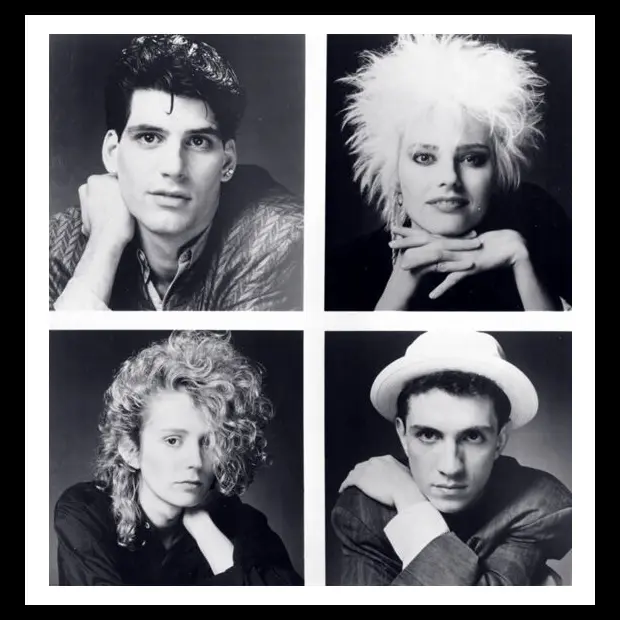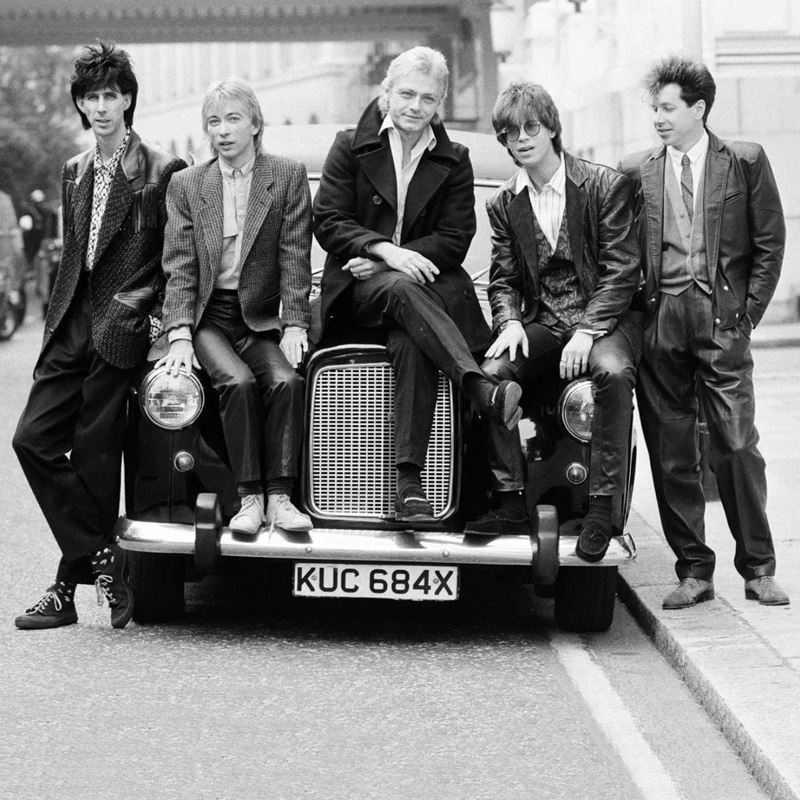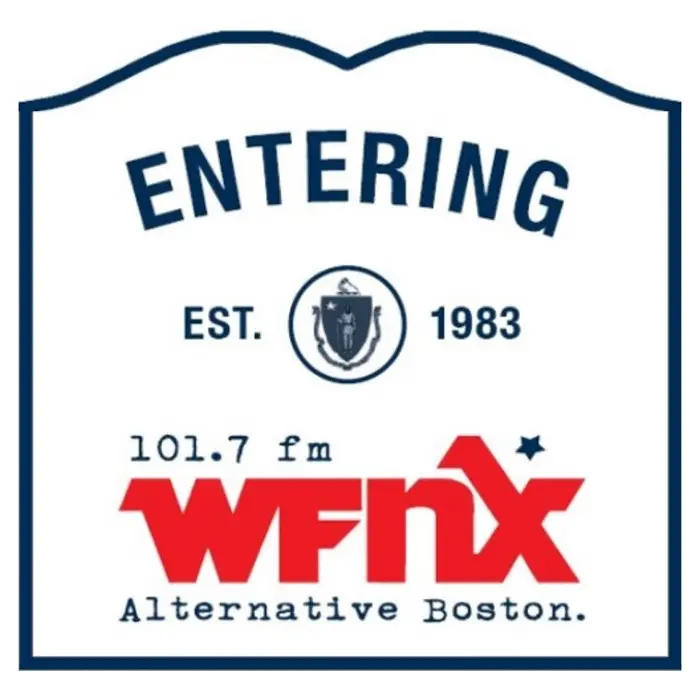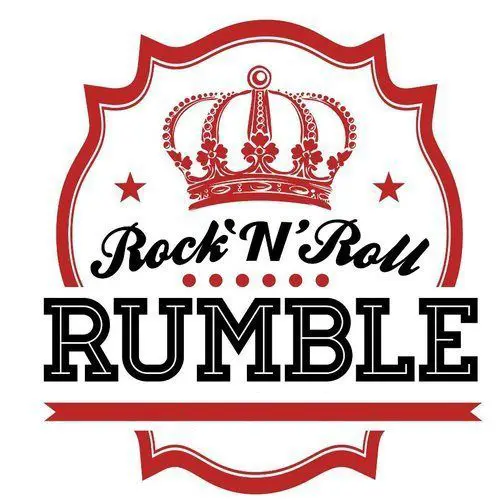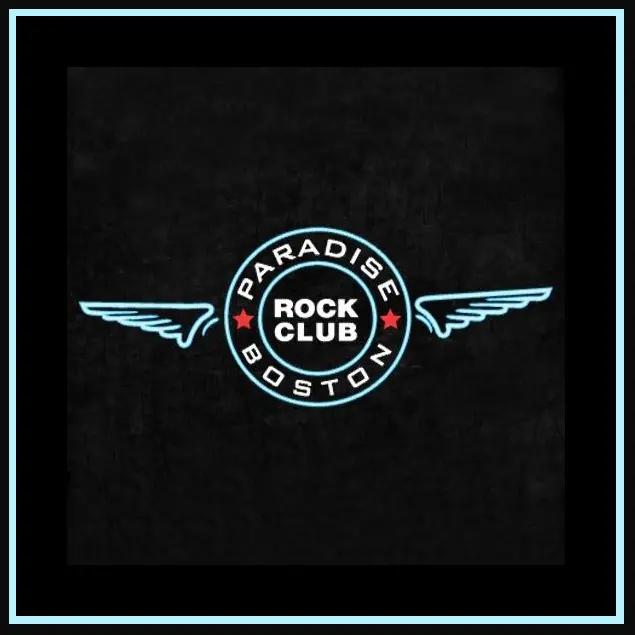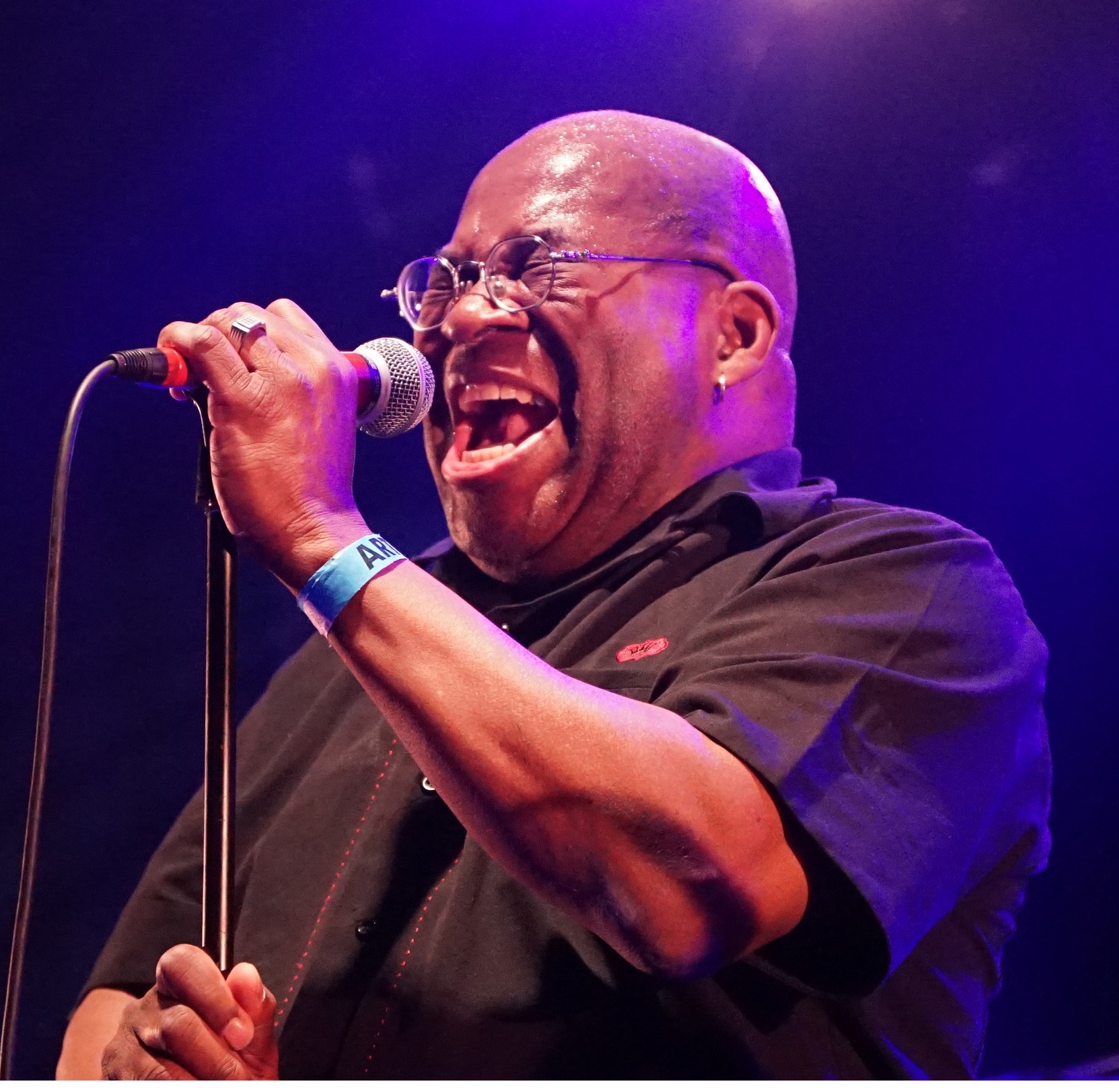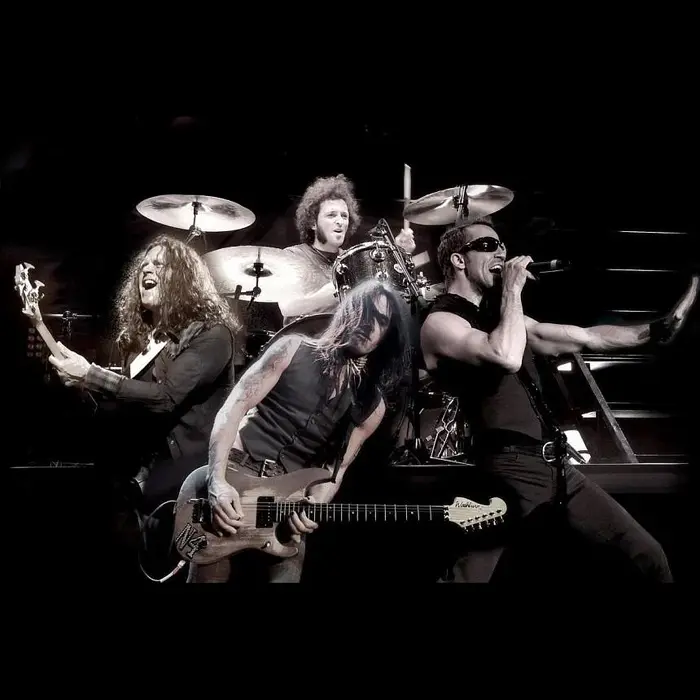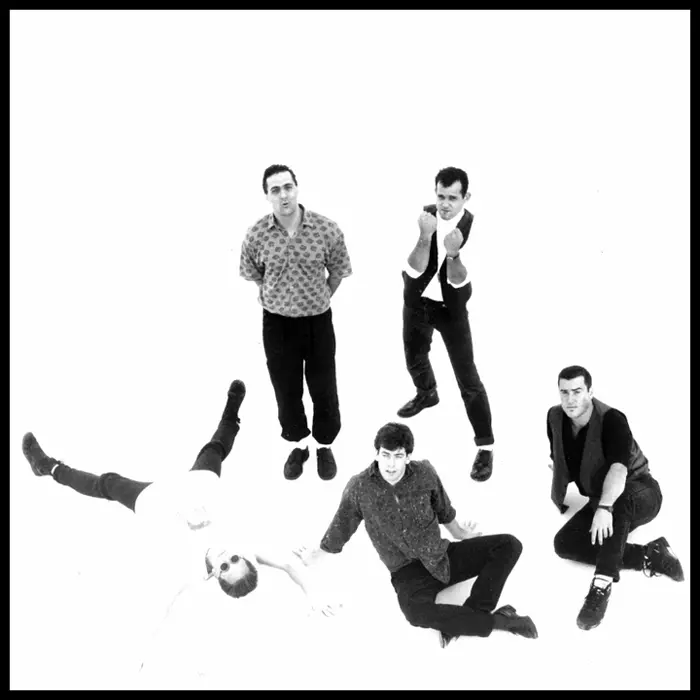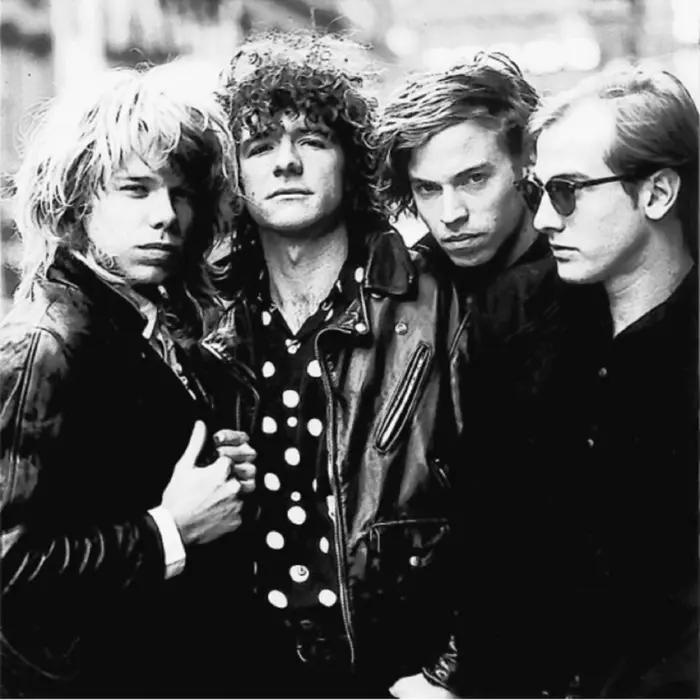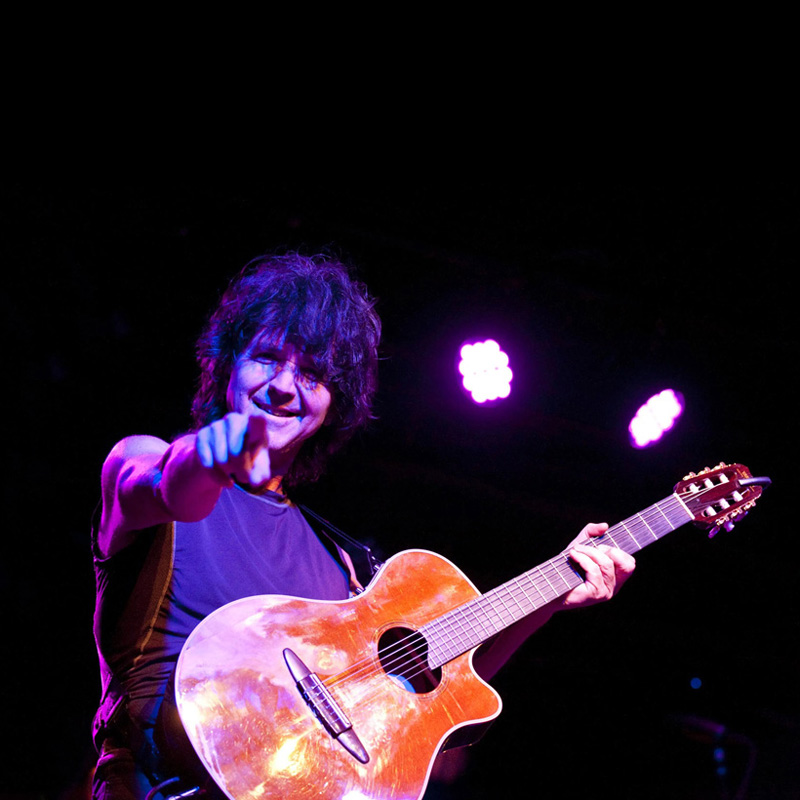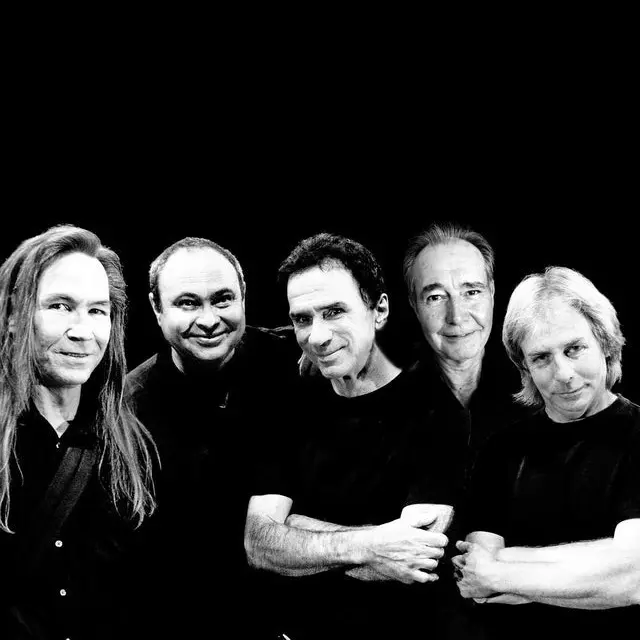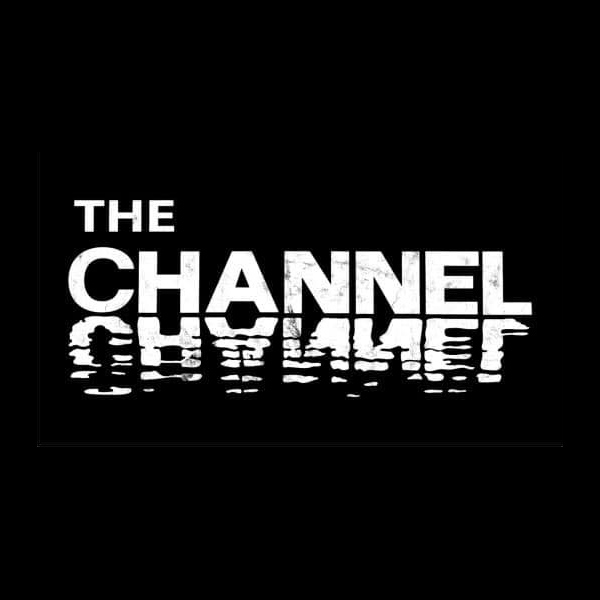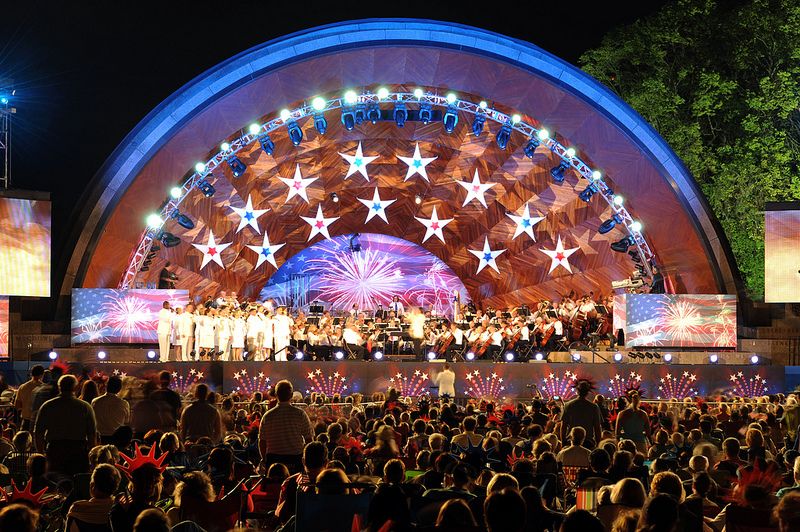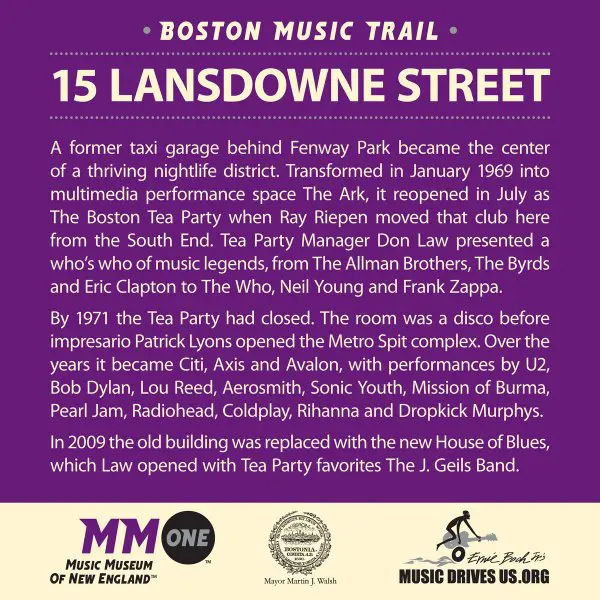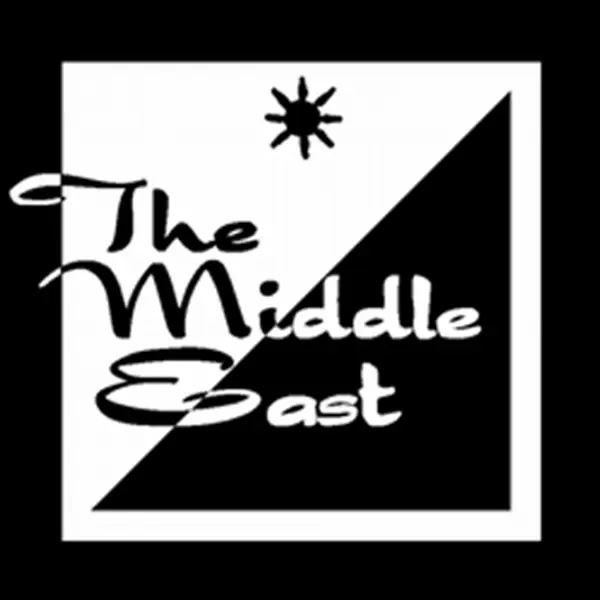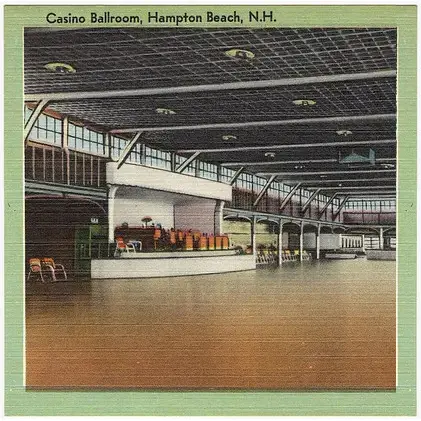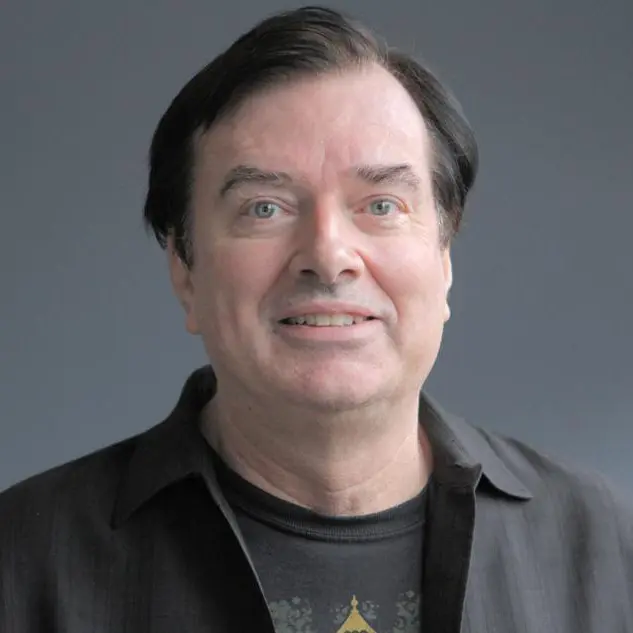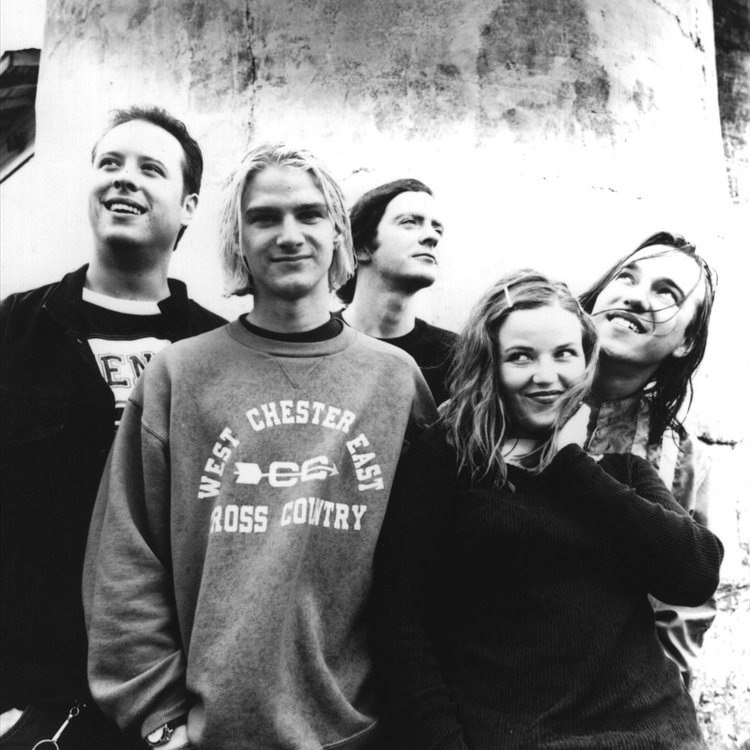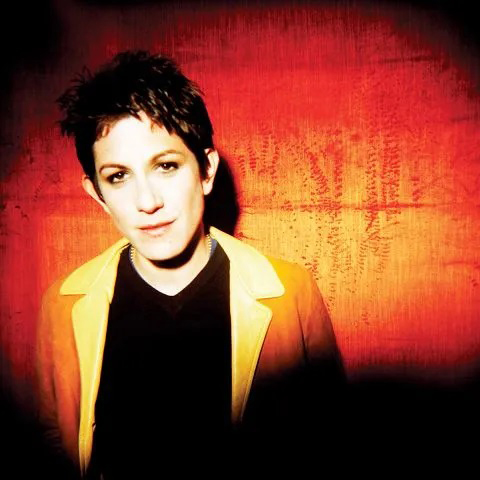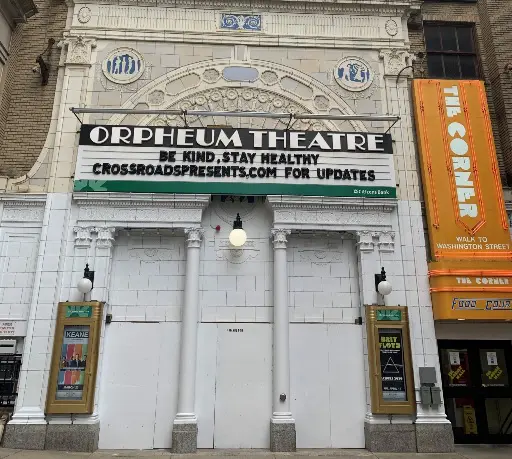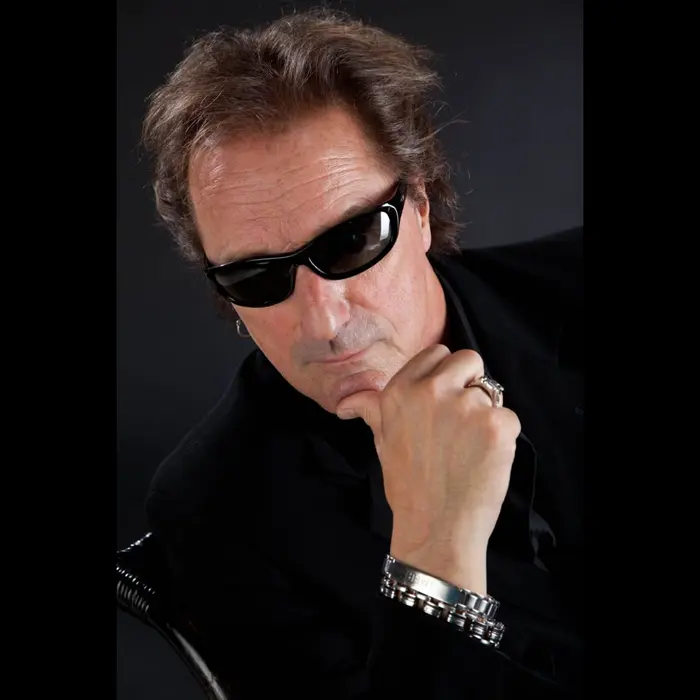Tribe

Almost every profile of Tribe ever written has compared them to Siouxsie and the Banshees, which is perfectly understandable. Both groups were grounded in goth, had polish and pop panache and were fronted by females with unique voices, mesmerizing presence and exotic attire that created a Stevie Nicks aura with a post-punk twist. For many, the similarity between the two bands was as obvious as John Cafferty’s to Bruce Springsteen.
But the comparisons end when it comes to longevity, recording output and the scope of their influence: London-based Siouxsie and the Banshees, formed 10 years before Tribe, stayed together for two decades, cut 11 studio albums and were a genuine global sensation; Tribe lasted seven years, recorded only three LPs and never achieved significant notoriety beyond the Boston-area bubble in which they were born.
Still, while the band was unable to convert its local acclaim and awards into national success like some of their contemporaries did – Dinosaur Jr., Pixies, Throwing Muses, Buffalo Tom and Guster, for example – Tribe were among the ass-kickin’est acts on Boston’s alt-rock scene in the late ‘80s and early ‘90s. Inventive, edgy and hook-heavy in equal measure, the group achieved a level of success that throngs of other New England groups came nowhere near and the fact that they didn’t smash through the walls of the national consciousness remains one of rock’s myriad mysteries.
FORMATION, SONGWRITING, INFLUENCES
Brought together in late 1985 through a series of classified ads and informal jam sessions, the quintet consisted of guitarist Eric Brosius, keyboardist Terri Barous, bassist Greg LoPiccolo, drummer David Penzo and lead vocalist Janet LaValley. In the band’s earliest days, they shared a house in the Boston suburb of Brighton, practicing in the basement.
While everyone pitched in on songwriting, Brosius and Barous were the main tunesmiths. Members brought an expansive range of musical influences, from David Bowie, Todd Rundgren, Aretha Franklin and Marvin Gaye to Genesis, Yes, John Lennon and Joni Mitchell. LoPiccolo told Beat USA that hardcore-punk pioneers like Dead Kennedys and Boston-based Volcano Suns and The Zulus were a regular part of his musical diet.
SOUND, STYLE
Tribe was distinguished by Barous’ dazzling keyboard skills, her musicianship adding an atmospheric texture that guitar-centric alt-rock bands – meaning virtually all of them – couldn’t possibly achieve. The group’s packaging of goth themes and infectious melodies with distorted guitar and airy synths resulted in an Eurythmics-like acoustical sheen with a Ramones vibe; sprinkled on top was the new-wave sensibility of ‘Til Tuesday and The Cars.
“We just write songs, and if it’s a good song, we play it,” LaValley told Beat USA. “We’re not a funk band or a folk band or a metal band, but if we write any of those [kind of] songs and they’re good, then we’ll play them.”
Some critics have postulated that the group’s fearless blending of styles was a major factor in their inability to break through nationwide. The combination of grungy guitar and ethereal synths with LaValley’s deep-but-effervescent vocals and goth-queen styling were, they say, too much for some would-be fans and too little for others.
EP, ROCK ‘N’ ROLL RUMBLE, BOSTON PHOENIX AWARDS
In 1987, the band recorded a self-titled, four-song EP and one of the tracks, the dirge-like sonic scorcher “Abort,” saw significant airplay on WFNX, the Boston area’s go-to alternative station at the time. That attention landed them a spot in the 1988 WBCN Rock ‘n’ Roll Rumble, held in May at the Paradise Rock Club; they made the finals but lost to Heretix, who signed with Island Records later that year.
Though they failed to win the Rumble, Tribe took home two Boston Phoenix awards for Best Local Band during their time together and LaValley won the alternative weekly’s Best Local Female Singer award three years in a row. In 1994, Clark Perry of Beat USA magazine called her voice “one of the richest to arrive on the popular-music scene since the early-1980s heyday of singers like Pat Benatar and Deborah Harry.”
With their local street cred at new heights following their Rumble success, in December 1988 they appeared at the WBCN Rock of Boston Concert held at Boston Garden along with Barrence Whitfield & The Savages, Extreme, O Positive, Farrenheit, The Del Fuegos, The Fools and ‘Til Tuesday. In 1989, they began playing regularly at The Channel and the Paradise either as the headliner and or the opener for major acts including Psychedelic Furs.
HERE AT THE HOME, WARNER BROS. SIGNING, ABORT
In March 1990, the group self-released the 10-track album Here at the Home; the last four songs on the LP were from the 1987 EP and the cassette version included only the six new tunes. The single from the LP was “Jakpot” – a crowd favorite in later live shows – and in 2007 the track “Outside” was included in the Rock Band video game. In October 1990, Tribe appeared at Boston Garden again, this time on a bill with O Positive, The Call, Masters of Reality and Hothouse Flowers.
In late 1990, Tribe signed with Warner Bros. subsidiary Slash Records, which released their major-label debut, Abort, in September that year. Produced by Chris Sheldon and Gil Norton (Pixies, Throwing Muses, Foo Fighters), the 12-tune LP was recorded and mixed at Blue Jay Recording Studio in Carlisle, Massachusetts, in early 1991.
Eight of the ten songs from Here at the Home were re-recorded and included on Abort. Three of the four new tracks – “Easter Dinner,” “Joyride (I Saw the Film)” and “Payphone” – were issued as singles but failed to chart nationally. “Joyride (I Saw the Film)” reached #4 on WFNX’s “Top 101 of 1991” list, though, while Siouxsie & the Banshees’ “Kiss Them for Me” came in at #8.
The Boston Herald’s Tristam Lozaw gave the disc a lukewarm review – “the broad new arrangements are engaging improvements on the band’s home-grown tapes,” he wrote – but Spin magazine’s Jon Young praised the album as a complex combination of elements rarely heard in the alt-rock spere. “The lush melodies emanate from easy-listening heaven, but Eric Brosius’s guitar burns with anguish,” he wrote. “The creamy vocal harmonies and three-dimensional arrangements encourage headlong escapism; the desperation of the lyrics reveals a world of pain. Abort’s unsettling vignettes of misery and degradation are rendered with enough style to keep cheesy melodrama to a minimum.”
Tribe spent much of 1992 on the road, including Boston shows at the Hatch Memorial Shell, City Hall Plaza and Avalon. As part of the Lollapalooza tour, they appeared at Great Woods Performing Arts Center (now Xfinity Center) in Mansfield, Massachusetts, in August.
SLEEPER
In early 1993, Slash issued what became Tribe’s final album, Sleeper, also recorded at Blue Jay Recording Studio but produced by John Porter (Roxy Music, The Smiths, Billy Bragg). The label released two singles, “Red Rover” and “Supercollider,” the latter an eerie tribute to the famous nuclear-research project being conducted in Texas at the time. After a summer tour that included shows at The Middle East and Hampton Beach Club Casino, in November that year the band played “Supercollider” on Late Night with Conan O’Brien, their only national television appearance.
In his review for The Boston Globe, Steve Morse called the album “an uneven effort, hampered by an often poor sound mix in which Janet LaValley’s vocals are mixed too low, muting her power and rendering many lyrics inaudible.” In a 2006 interview with Bullz-Eye magazine, bassist LoPiccolo agreed with Morse’s assessment. “I was personally a little disappointed in the sound of Sleeper,” he said. “We weren’t getting along that well when we were making it, so we didn’t collaborate very effectively. I think some of the songs are really good, but it’s kind of a murky-sounding record.”
Shortly after recording Sleeper, drummer Penzo left the group, replaced by studio ace Mike Levesque, who played on the supporting tour. “It’s always stressful to record and the band was going through a rough time,” LaValley told The Boston Phoenix following his departure. “It had been coming to a head for a long time.”
DISBANDING, POST-TRIBE ACTIVITY
Following weak sales of Sleeper, Slash dropped Tribe and the band broke up in the spring of 1994. “When Warner Bros didn’t pick up our option for the third album, that was kind of a momentum-killer,” LoPiccolo told Bullz-Eye in 2005. Their final shows were on April 28 at Worcester Polytechnic Institute’s Alden Hall (with Letters to Cleo) and May 8 at Boston’s Orpheum Theatre (opening for English alt-rockers James).
After the split, Eric Brosius and Terri Barous married and, along with Greg LoPiccolo, joined Cambridge-based video-game developer Looking Glass Studios. Brosius and Barous became founding members Harmonix, the Boston-based developer of the Guitar Hero games.
Terri played keyboards in The Vivs, who released three albums between 2009 and 2015, and Eric worked with two bands, Dark Wheels and Eddie Japan, the latter of which includes LoPiccolo’s brother, Bart, on guitar and has digitally released one album, 2017’s Golden Age, plus a host of singles.
David Penzo started a cooking career at upscale Italian restaurant Rialto in Harvard Square in 1994 and today he’s a sous chef at Vermont Technical College, working for the global catering giant Sodexo. He’s also the owner of Penzo Pizza Company, a wood-fired-pizza truck that he operates during the summer in Essex Junction, Vermont.
Janet LaValley worked as a solo artist in New York City for a number of years before cofounding and becoming lead singer of the darkwave band Murdoch; they self-released their debut album, Gone, in 2021. LaValley’s song “Jube” was on the soundtrack for the 2012 feature film That’s What She Said.
Mike Levesque went on to play in alt-rock groups Talking to Animals, Candy Butchers and The Montgomerys. As a studio/touring drummer, he’s worked with artists including David Bowie, Natalie Imbruglia, Reeves Gabrels, James Montgomery and Jen Trynin.
CULT FOLLOWING, “A REALLY SPECIAL EXPERIENCE”
Asked in 2006 if he’s surprised by the reverence people have for Tribe and that the band has maintained a cult following, LoPiccolo was a model of humility. “We do?” he said. “Well, I’m happy that we were able to create some songs that people actually cared about.”
Asked if he had any message for the group’s fans, he was a model of gratitude. “Hey, thanks for caring about our songs, and for coming to see us!” he said. “It had its ups and down but, at its best, it was a really special experience that I was privileged to be a part of.”
(by D.S. Monahan)

